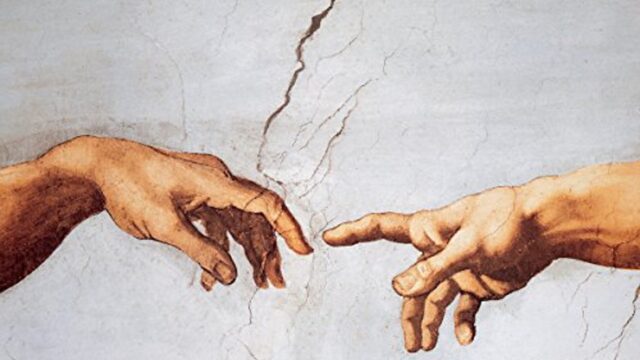Magnanimity

A virtue worth maximizing.
Let’s do a little Screwtapian moral theology.
If I were the enemy of the Faith and of human flourishing, I’d seek to confuse the faithful about the place of aspiration and achievement within the Christian life—aiming to disillusion the spirited young men especially. I’d want them to believe that God somehow disapproves of magnanimity, so I’d train a couple generations’ worth of catechizers to scold the spiritedness out of these young men, or drive them away from the Faith, or both. These developments within the Church would pair well with larger developments outside it: the convenient disappearance of worthy causes and the rise of cults of safety and comfort. What is left to aspire to? And why would anyone wish to forgo conveniences and pleasures to achieve those modest aspirations, especially if they believe God frowns on their ambitions? Magnanimity naturally gets forgotten, which is evident enough in the dwindling number of people that can even pronounce the word anymore. Magna-what-now?
Rediscovering Something Forgotten
I wish this was just a dystopian thought experiment—rather than the spirit of the times in which I came of age. But if the bad news is that we’re in a treacherous position, smothered under the layers of confusion and spiritual sabotage, the good news is that we’ll find a more invigorating teaching in our tradition if we can clear away the rubble and re-emerge into the light of day.
Magnanimity, from the Latin roots magnus (“great”) + animus (“soul”), literally means “having a great soul” or “great-heartedness.” The virtue shows itself in a number of ways but is most fundamentally “the aspiration of the spirit to great things,” in the words of Josef Pieper. “A person is magnanimous,” he continues, “if he has the courage to seek what is great and becomes worthy of it.” That last part speaks to the heart: the magnanimous man wants great things, but he wants above all to be worthy of those great things and cares little to possess what he doesn’t deserve. Not only is this a perfectly fitting virtue in the Catholic vision of the good life, but Thomas Aquinas calls it the “jewel of the virtues” because it guides us toward the greatest possibilities before us.
To understand magnanimity we have to understand its place within a larger set of virtues and vices—particularly its relation to pride, humility, and acedia.
Low-energy teachers confuse magnanimity with pride—and common usage confuses us further. We use that term to mean the queen of all vices, then five minutes later we remind ourselves that we need to “take pride in our work” or we hear someone ask a loser who has given up on life, “Don’t you have any pride?” Pride is that which “goeth before destruction” but also that which drives us to not be worthless bums. Because the word conveys wildly varied things, trigger-happy moralists denounce the good along with the bad and almost imply that you actually should aim to be a worthless bum because that’s what the Lord wants!
According to Augustine, theological pride is properly understood as “the desire for inordinate exaltation.” The prideful man seeks equality with God and “wishes to usurp His dominion over our fellow creatures.” When Adam and Eve sinned in the Garden, they weren’t committing some minor violation of trivial rules—eating these apples rather than those—but an act of grave defiance in seeking to make themselves “as Gods.”
Humility is the antidote to theological pride. But it must be the real thing. What we call “humility” today has a tendency toward self-righteous smallness—almost a competition to see who can be smallest—which Augustine warns is itself a “grievous pride.” “Humility is not primarily an attitude that pertains to the relationship of man to man,” Josef Pieper writes: “it is the attitude of man before the face of God. Humility is the knowledge and acceptance of the inexpressible distance between Creator and creature.” So true humility can be attained—and theological pride avoided—by remembering a very basic truth: you did not create yourself. No need to put on a falsely pious show of feebleness and renounce all ambition. Just remember that you are not God, and live accordingly.
And true humility has invigorating effects. It challenges us to see reality and to refrain from attempts to impose our own fancies and fantasies on the world—which we didn’t make, and which doesn’t answer to us. More is possible in life when we shed delusion and seek to know the truth about ourselves. All good things are born of an encounter with reality.
Yet humility is not the be-all, end-all virtue, if only because pride is not the only danger coming for us. Despair, dispiritedness, sloth, what people once called acedia or the “noonday devil”—these plague the democratic man at least as much as delusions of grandeur, and probably more. We are increasingly conditioned to desire vulgar pleasures, constant distractions, and the perfect safety in which to consume them—as though the ideal existence is that of the obese space-tourists in WALL·E.

At the risk of giving the prideful man too much credit, he at least shows signs of spiritedness and gives God material with which to work. Sloth on the other hand conveys spiritual deadness. If pride is the chief sin, sloth is the most worthless sin and the most prevalent in our times. More than just couch-potato syndrome, sloth is a rejection of life, a sadness or indifference in the face of some spiritual good to which one has been summoned. In a sense, Aquinas says, sloth is not a specific vice but rather “a circumstance of all vices.”
If you’re anything like me, Aquinas’ line hits close to home: you can identify more than a few sins committed simply because you lacked the spirit to say no—almost a form of sinning-by-shrugging. “Why the hell not?” This is textbook acedia, and I’m now convinced that it’s lower than sinning with gusto.
Magnanimity is the answer to acedia. It summons the spiritual energy to overcome deadness; the magnanimous man knows he is made for something better. And this virtue is more than just reconcilable with true humility—it is humility’s tandem virtue. Just as humility protects us from presumption and delusion, magnanimity protect us from pathetic contentment with mediocrity and baseness. Somewhere on the Venn diagram the two circles of magnanimity and humility of overlap, where aims are both great and attainable. This is where a man needs to be focusing his efforts.
A Program
I find myself needing to recommit to magnanimity-maxxing. There are some exercises and practices so obvious that they hardly need mentioning: training in the martial arts prepares you not just for literal fights, but also readies you for metaphorical ones; studying heroes shows you possibilities and ignites the heart; believing in the Lord and growing in faith root you in the source of greatness—being made in the image and likeness of God. One can also argue that lifting weights is a perfect example of the dynamic tie between magnanimity and humility: in our efforts to become stronger, we must come into constant awareness of the limits of our strength.
There are also a few more subtle ways:
1) Walking
Walking is an underrated part of any fitness program, and the mental and spiritual gains are at least as important than the physical. What’s most interesting to me is how I usually grow in resolve on a walk. I have visions of what could be—which make me eager to get to work. Likely there’s a tie between simply moving forward physically, one step at a time, and also doing so spiritually—just as there’s a tie between too much sitting and spiritual stagnation. The will is exercised on the move.
2) Limiting noise
Nobility of the spirit and excessive noise don’t go together. It’s in silence that the magnanimous man establishes depth and composure and hears the vibrations and whispers that others cannot hear. This is why modern life is so eager to bombard us with noise—music everywhere you go, TVs always playing in the background, leaf-blowers making a racket.
Even intelligent noise can be a problem. Jordan Peterson once observed that podcasts and Youtube videos allowed a person to listen to educational talk while doing chores or running errands—thus lengthening the hours of the day. It’s pretty to think so—but time isn’t so easily bent, and nonstop talk discomposes a man. It makes him itchy for more noise, unable to abide the silence. It also guarantees that he will remember less of what he heard. Good podcasts and audiobooks can only be indulged in moderation. It’s time to learn how to rawdog the day again.
3) Cutting irony, sarcasm, crassness
A greater attentiveness to our language is just as important as attentiveness to our surroundings. The Lord said it’s not what goes in to a man that makes him unclean, but what comes out. No matter where a man finds himself he can always summon mastery over his words.
Crassness is obviously destructive, and I’ve noted elsewhere that sarcasm is cheap. The point is simply to take seriously the godlike attributes of our speech—God spoke the universe into existence, and then made man in his image and likeness. If we use this gift poorly, it will ruin us; if we use it well, it will ennoble us.
